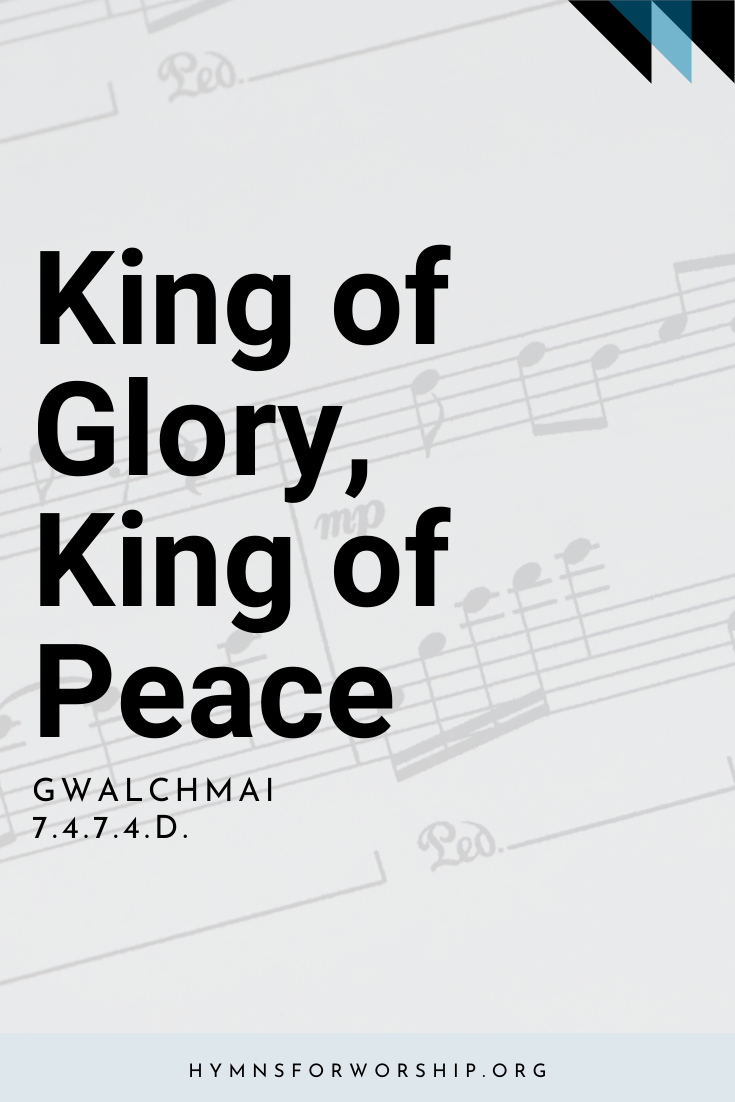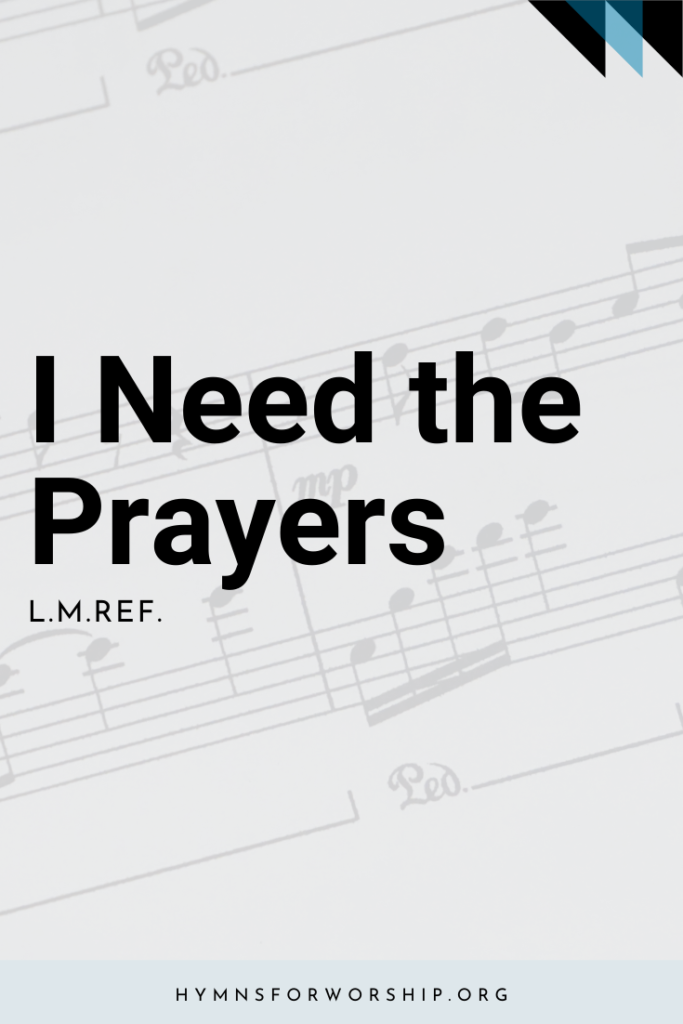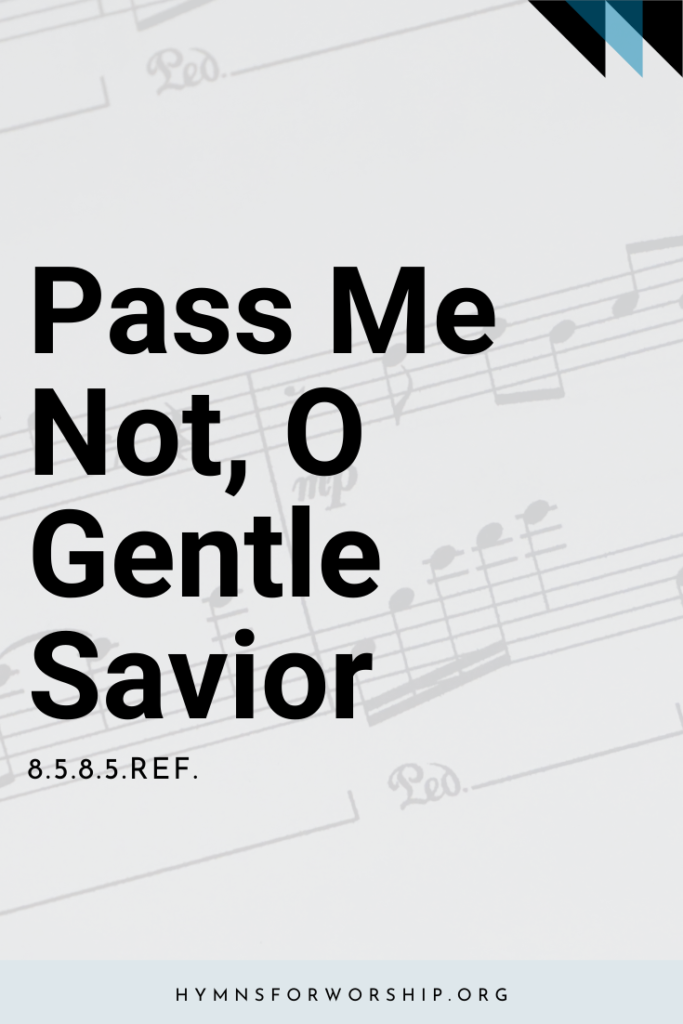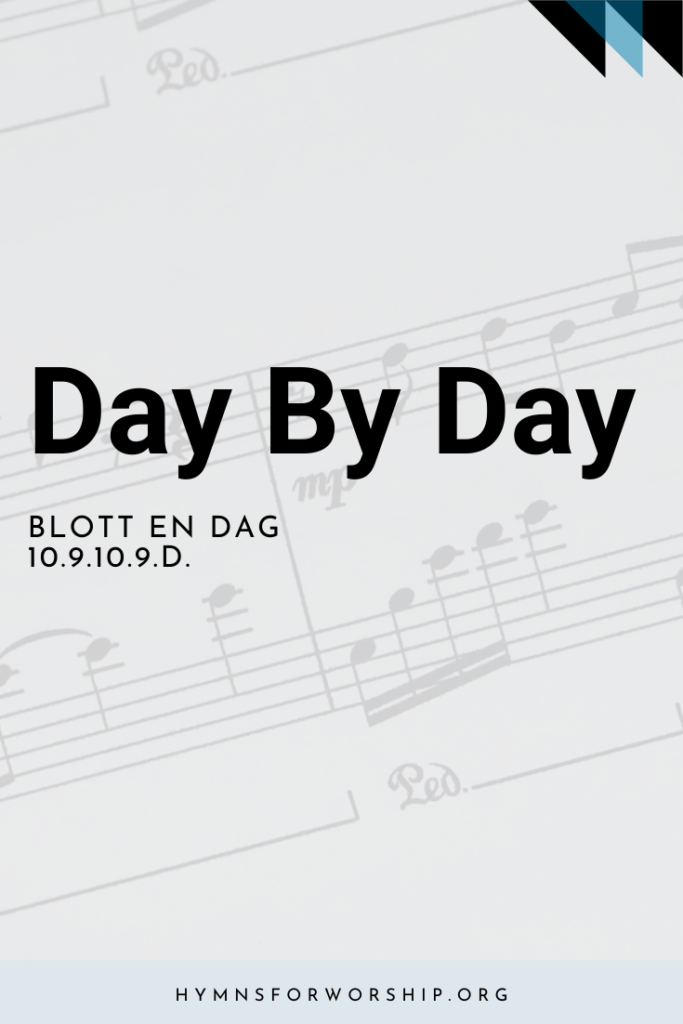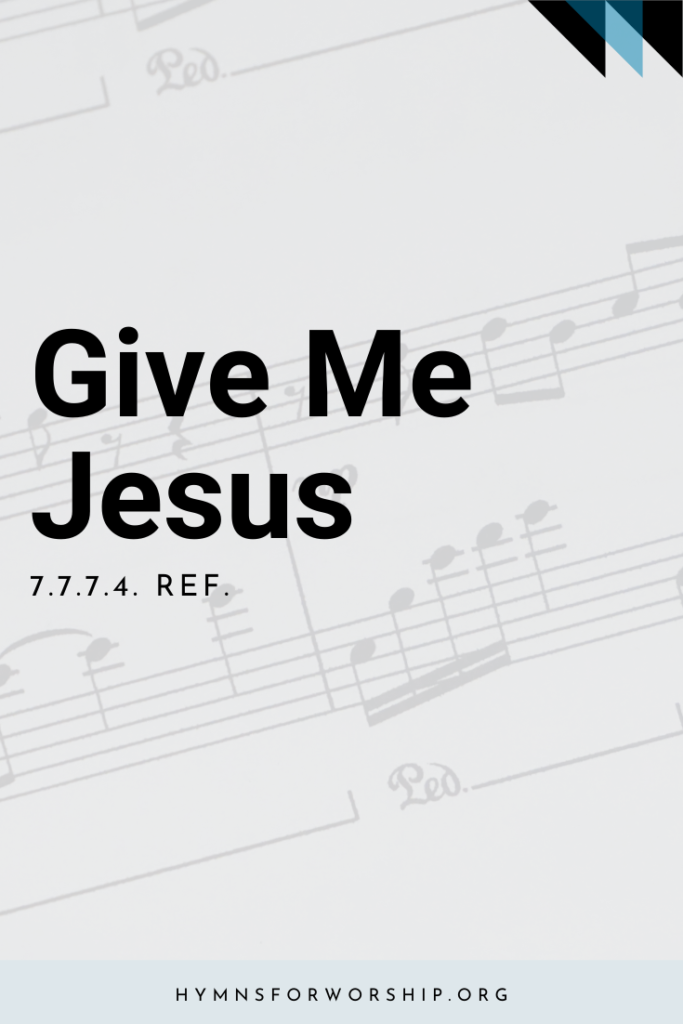JESUS CHRIST >> GLORY & PRAISE
SDAH 243
King of glory, King of peace, I will love Thee;
And that love may never cease, I will move Thee.
Thou hast granted my request, Thou hast heard me;
Thou didst note my working breast, Thou hast spared me.
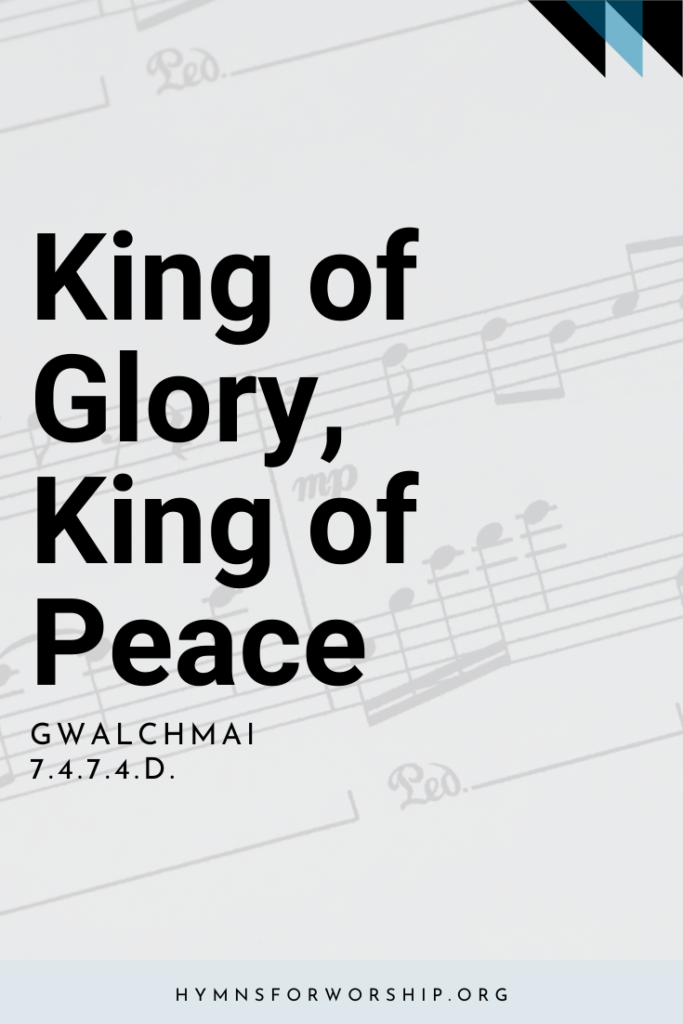
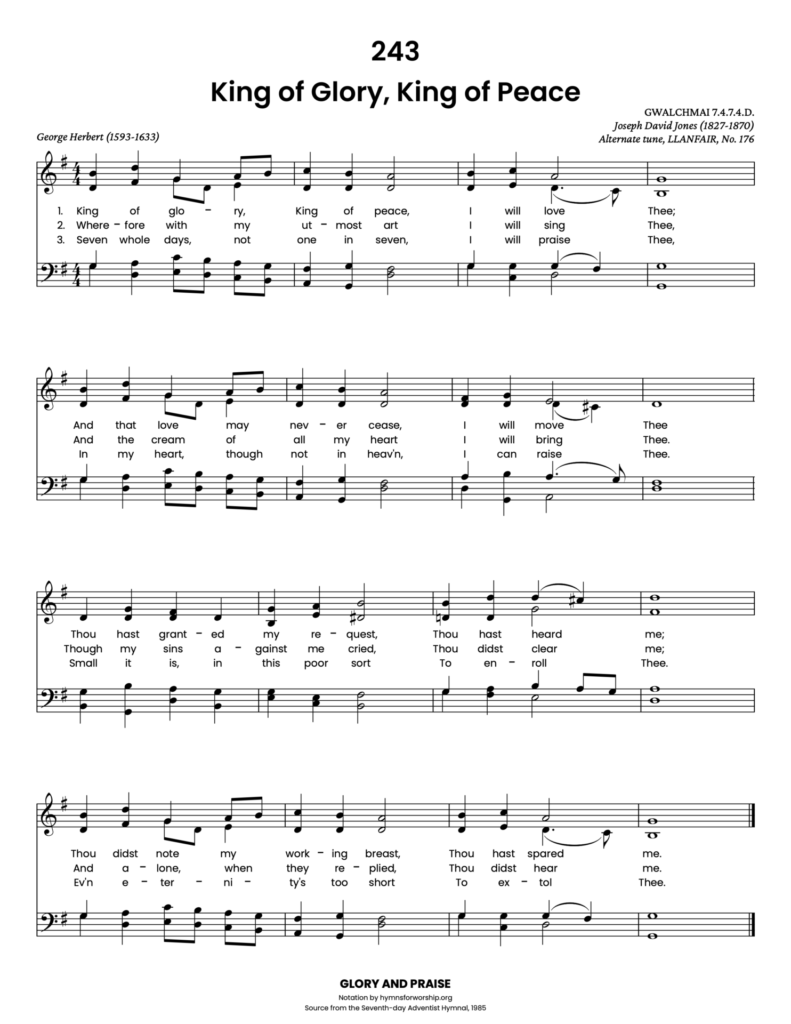
Get the hymn sheet in other keys here
For Worship Leaders
Make each hymn more meaningful with these helpful tools: Short, ready-to-use hymn introductions for church bulletins, multiple ways to introduce a hymn based on your worship theme and in-depth history and insights to enrich your song service.
Hymn Spotlight: King of Glory, King of Peace
George Herbert’s devotional poetry becomes song in this majestic hymn. Each line expresses a heart full of gratitude and praise. Set to the Welsh tune GWALCHMAI, it sings itself with joy and strength. Make this your song of personal praise to the King.


Text
1
King of glory, King of peace, I will love Thee;
And that love may never cease, I will move Thee.
Thou hast granted my request, Thou hast heard me;
Thou didst note my working breast, Thou hast spared me.
2
Wherefore with my utmost art I will sing Thee,
And the cream of all my heart I will bring Thee.
Though my sins against me cried, Thou didst clear me;
And alone, when they replied, Thou didst hear me.
3
Seven whole days, not one in seven, I will praise Thee;
In my heart, though not in heav’n I can raise Thee.
Small it is, in this poor sort to enroll Thee:
Ev’n eternity’s too short to extol Thee.

Hymn Info
Biblical Reference
(a) Ps 24:8; Isa 9:6; Ps 6:9 (b) Ps 9:1; Ps 51: 3, 9 (c) Ps 52:9
Author
George Herbert (1593-1633)
Hymn Tune
GWALCHMAI
Metrical Number
7.4.7.4.D.
Composer
Joseph David Jones (1827-1870)
Alternate Tune
LLANFAIR SDAH 176

